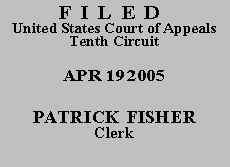

Mr. Archer injured his knee when he fell on the stairs of LCF the evening of January 15, 2002. He alleges that prison personnel recklessly transported him on a wooden gurney in a cargo van to the medical clinic. Mr. Archer states that the nurse on duty unreasonably refused to x-ray his knee or send him to the hospital. After x-rays were taken the next day, Mr. Archer states that the doctor on duty failed to properly diagnose or treat his injury, and that the doctor's failure to prescribe a blood thinner led to a dangerous blood clot that was later discovered and treated. Mr. Archer also complains that Prison Health Services staff failed to give him the prescribed medicine, substituting other medications. This, he says, led to delayed reparation of his knee. Mr. Archer argues that these actions by prison officials were cruel and unusual and thus violate the Eighth Amendment.
We review the district court's decision to dismiss pursuant to Rule 12(b)(6) de novo, applying the same standards as the district court. Montgomery v. City of Ardmore, 365 F.3d 926, 935 (10th Cir. 2004). We take all well-pleaded factual allegations in the complaint as true and view them in the light most favorable to the non-movant. Id. Dismissal is appropriate only where it is apparent that the plaintiff can prove no set of facts in support of his claim. Id. On account of his pro se status, we read Mr. Archer's complaint liberally. See Cummings v. Evans, 161 F.3d 610, 613 (10th Cir. 1998).
"[D]eliberate indifference to serious medical needs of prisoners constitutes the 'unnecessary and wanton infliction of pain' proscribed by the Eighth Amendment." Estelle v. Gamble, 429 U.S. 97, 104 (1976) (quoting Gregg v. Georgia, 428 U.S. 153, 173 (1976)). However, "[a] negligent failure to provide adequate medical care, even one constituting medical malpractice, does not give rise to a constitutional violation." Perkins v. Kan. Dep't of Corr., 165 F.3d 803, 811 (10th Cir. 1999). Mr. Archer received medical attention for his knee injury and his wound healed. The blood clot was treated as soon as it was discovered. Mr. Archer's allegations of unreasonable medical treatment amount to a claim of negligence at most, not deliberate indifference. His dissatisfaction with the treatment provided does not state a cognizable constitutional claim under the Eighth Amendment. Therefore, he has failed to state a claim upon which relief can be granted.
Accordingly, the judgment of the United States District Court for the District of Kansas is AFFIRMED. We remind Mr. Archer that he must continue making partial payments until the entire appellate filing fee has been paid.
Entered for the Court
Michael W. McConnell
Circuit Judge
*.After examining the briefs and appellate record, this panel has determined unanimously that oral argument would not materially assist in the determination of this appeal. See Fed. R. App. P. 34(a)(2); 10th Cir. R. 34.1(G). This case is therefore submitted without oral argument. This order and judgment is not binding precedent, except under the doctrines of law of the case, res judicata, and collateral estoppel. The court generally disfavors the citation of orders and judgments; nevertheless, an order and judgment may be cited under the terms and conditions of 10th Cir. R. 36.3.